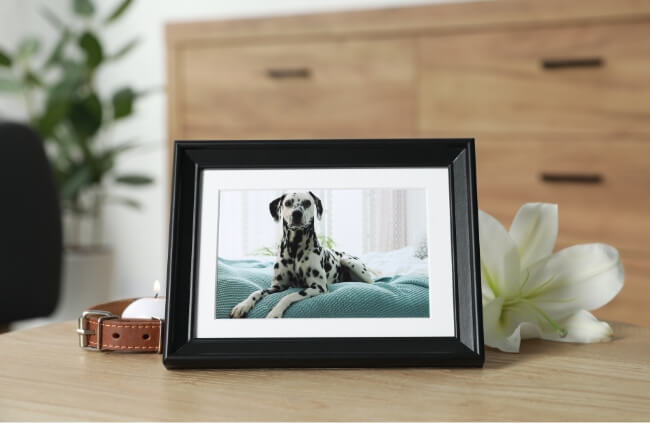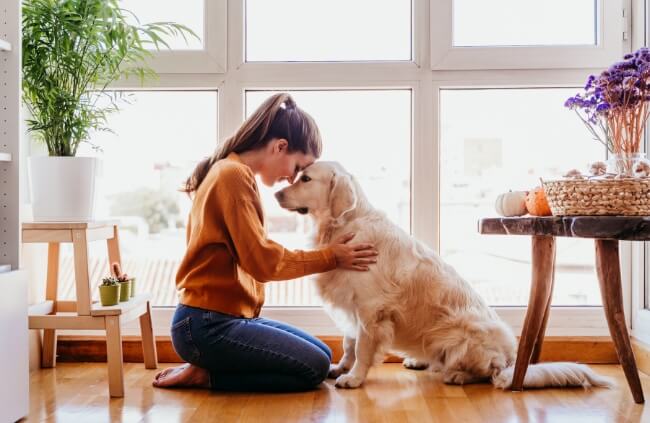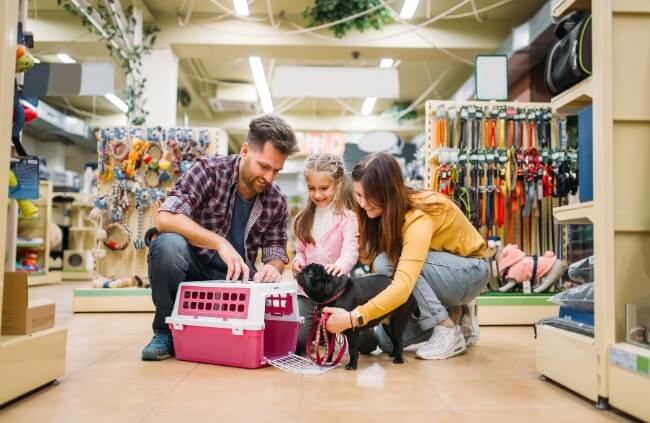Losing a dog can be a heart-wrenching experience. All pet owners know it is a reality that they must face at some point in time. In this article, we will discuss the grieving process, steps to help you cope with the loss of a dog, and how to support your other pets.
You are not alone on this journey. We want you to find comfort and healing.
More...
Grieving When Losing a Dog

Grieving the loss of a dog is a unique and individual experience. Here are some important things to keep in mind after losing a dog:
- Different for Everyone - Grieving the loss of a dog is different for everyone. Some people may experience intense sadness, while others may feel anger or a sense of emptiness. Your feelings are valid, no matter how they manifest.
- No Timeline for Grief - There is no set timeline for how long the grieving process will last. Some people may start to feel better in a week or two, while others may take months or even longer. Everyone’s timeline for grief is different.
- Stages of Grief - Grief often follows a pattern that includes different stages. You may feel denial, anger, bargaining, depression, and finally acceptance. Knowing that these are common stages of grief can be reassuring.
- There Will Always Be a Bond - The love and bond you had with your dog will remain in your heart forever. Your pet's memory will continue to bring joy and comfort throughout your life.
How to Cope with the Loss of a Dog
The death of a dog can be sudden, or it can follow a long illness. But no matter how it happens, the pain of losing a dog can be unbearable. Here are a few things that can help you cope with your grief and honour your beloved pet.
- Allow Yourself to Grieve - It is normal to grieve the loss of a dog. Grieving is a natural response. Allow yourself to experience the sadness, anger, and pain that come with the loss of a dog. These strong emotions are part of the healing process.
- Share Your Feelings - Do not be afraid to express your emotions. Talk to your friends or family members who understand the love you had for your dog. Sharing your feelings and memories with those close to you can provide comfort.
- If Needed, Seek Professional Help - Some people have a very hard time coping with losing a dog. They cannot deal with the pain on their own. If you are experiencing intense, long-lasting grief, consider seeking professional help. You can talk to a counsellor or therapist.
- Create a Memorial - Celebrate your dog's life with a memorial. This could be a photo album, a scrapbook, a monument, or even planting a tree in their memory. A memorial allows you to cherish the beautiful moments you shared with your pet.
- Support Groups - There are several support groups throughout Australia specifically for pet owners who have lost pets. These groups offer a safe space to share your experiences and connect with others who understand your pain.
- Take Care of Yourself - Maintaining a normal routine will help provide structure and a sense of normalcy. It is important that you eat well, exercise, and get enough rest to support your emotional well-being.
- Write Down How You Feel - You can also write a letter to your pet, telling them all the things you wish you could say to them. Or write down your feelings in a diary. Having your feelings in writing is a way to express your emotions while remembering the good times you had with your pet.
Supporting Your Other Pets

Just as humans experience grief with the loss of a dog, pets can too. They may not understand death, but they do know that their friend is no longer there, and they miss them.
Here are some ways pets may react to the loss of a canine companion and how you can support them:
- Changes in Behaviour
- Searching and Whining
- Loss of Appetite
- Lethargy
- Become More Affectionate
How to support your other pets during this difficult time:
- Offer Comfort and Attention
- Maintain Your Daily Routine
- Provide Distractions
- Consult Your Veterinarian
Refer to our guide on recognising dog grieving symptoms to learn more about supporting your pets during this challenging time.
Euthanasia is a Difficult Decision
If you had to make the difficult decision to euthanise your dog, remember that it was an act of love. You did it out of compassion to end their suffering. It is common to feel guilty about making this choice. Keep in mind it was made out of concern for your dog's well-being.
The important thing to remember is that your dog is no longer hurting or in pain, and that is because of the hard choice you had to make. Your dog is now at peace, and you showed them the ultimate act of care and kindness.
Getting a New Pet

If you are grieving the loss of a dog, you may be thinking about getting a new pet. It is essential to remember that it is a big decision. After losing a dog, your heart might feel heavy, and you might miss them a lot.
It is natural to want to fill that empty space with a new pet. However, it is important to wait until you are ready. Getting a new pet is a big responsibility. You need to make sure you have enough time and love to give to them. Your new dog will need your attention, care, and love.
So, you should wait until you have had time to grieve and heal from the loss of your old dog. This way, when you bring a new pet into your home, you will be able to give them all the love they deserve.
Take your time, and when you are ready, your new pet will bring you lots of joy and happiness.
Take Your Time When Grieving the Loss of a Dog
The loss of a dog is an emotional journey that requires understanding, patience, and self-care. Coping with grief, making decisions about your pet's passing, and supporting other pets in your home are all part of the process.
Remember, you are not alone. Talk to friends, family, and professionals who can provide the support you need to get through this difficult time. In time, the pain will ease, but your dog's memory will live on in your heart forever.
Grieving the loss of a dog is a testament that you have a deep bond with your fur baby. Remember that grieving is a highly personal process, and there is no right or wrong way to go through it. The most important thing is that you take the time you need to heal from losing a dog.
